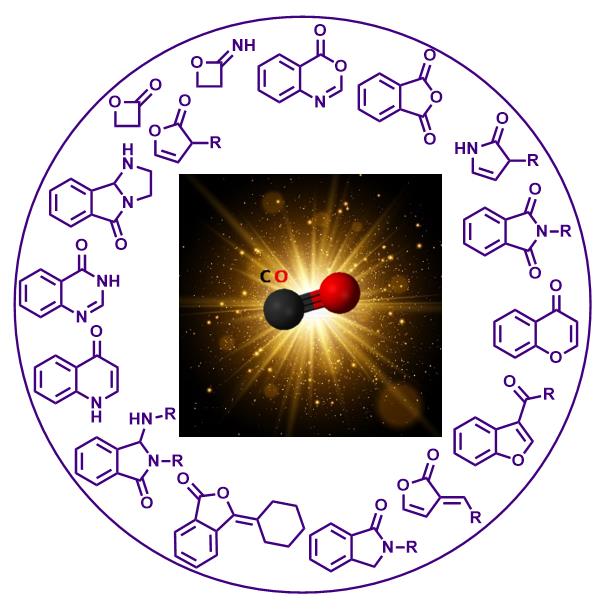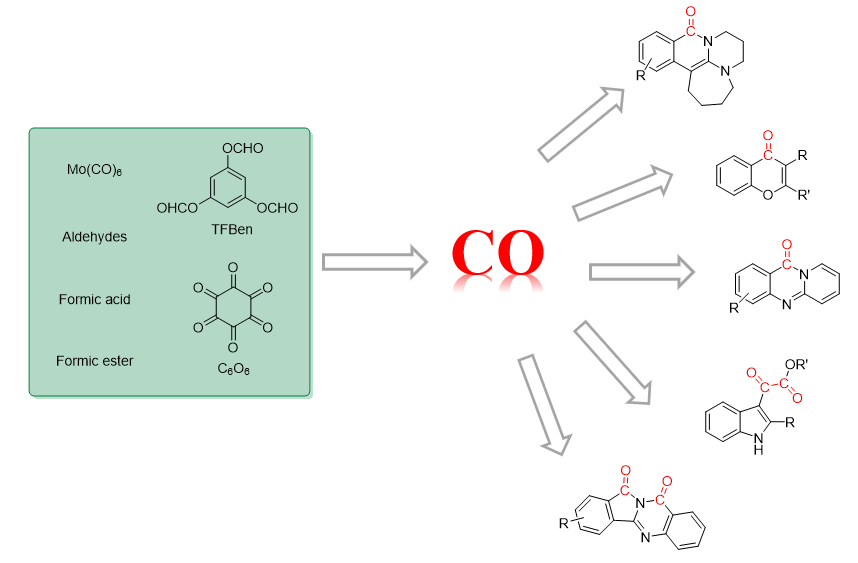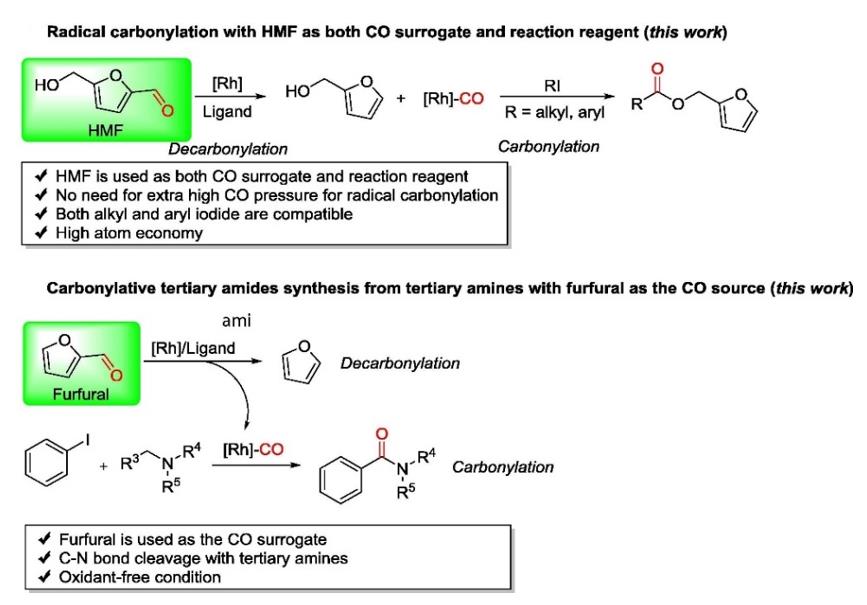Conversion of Carbon Monoxide to Fine Chemicals
Carbonylation, an efficient and precise approach for installing carbonyl group into their parent compounds, is an important area in modern organic synthesis. Since 2011, much of our research has focused on developing transition metal catalyzed carbonylation to synthesize various carbonyl compound, utilizing carbon monoxide as the C1 building block, in terms of atom and step economy. During the past time, we have successfully applied carbonylation in the synthesis of flavones, furanones, benzoxazinones and etc.

Non-noble Metal Catalyzed Carbonylative Transformations
The exploration of non-noble catalysts in organic synthesis has proved to be one of the ideal choices, due to their advantages such as abundance, low price, low toxicity, etc. Our research has also focused on the development of non-noble metal-catalyzed carbonylative transformations.

Green Carbonyl Sources in Carbonylation
As one of the cheapest C1 sources, CO takes up an irreplaceable position in industrial fields, but its high toxicity, odorlessness, and the requirement of high-pressure equipment hinders its wider application in academic fields. Thus, to develop and utilize new CO surrogates is of great significance. As one aspect of our research, we have employed Mo(CO)6, aldehydes, DMF, formic acid, and its esters, etc. as greener CO sources in developing CO gas-free carbonylation reactions.

Conversion of Biomass to CO
